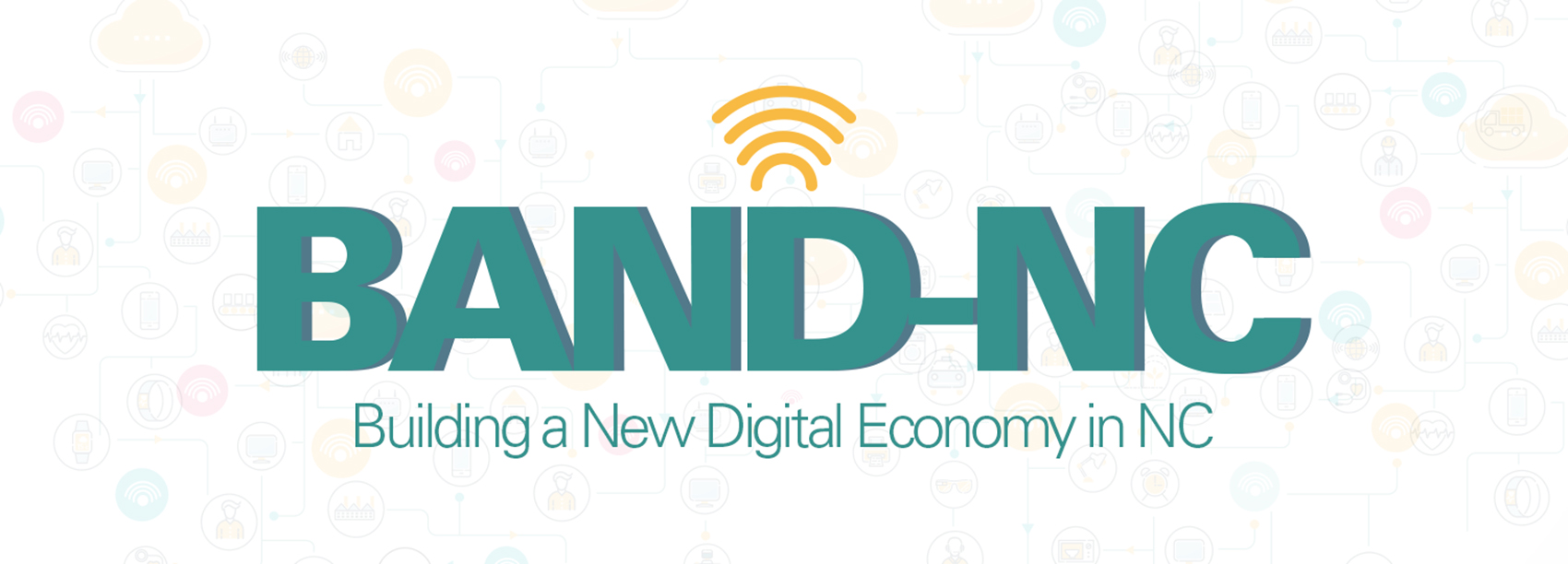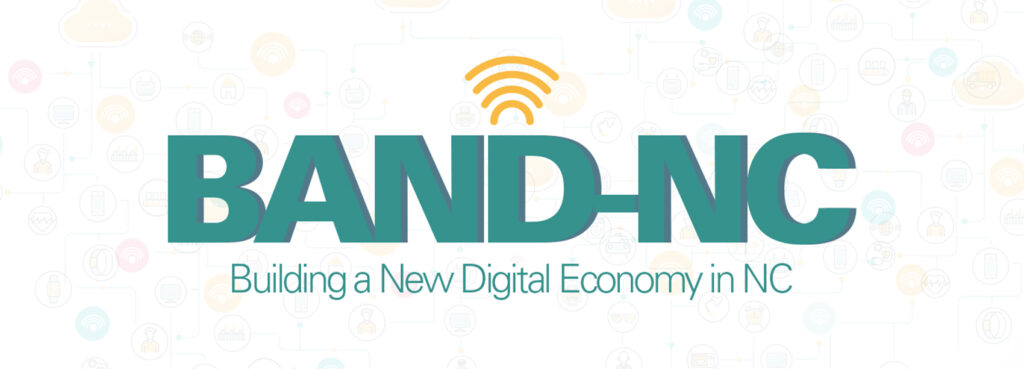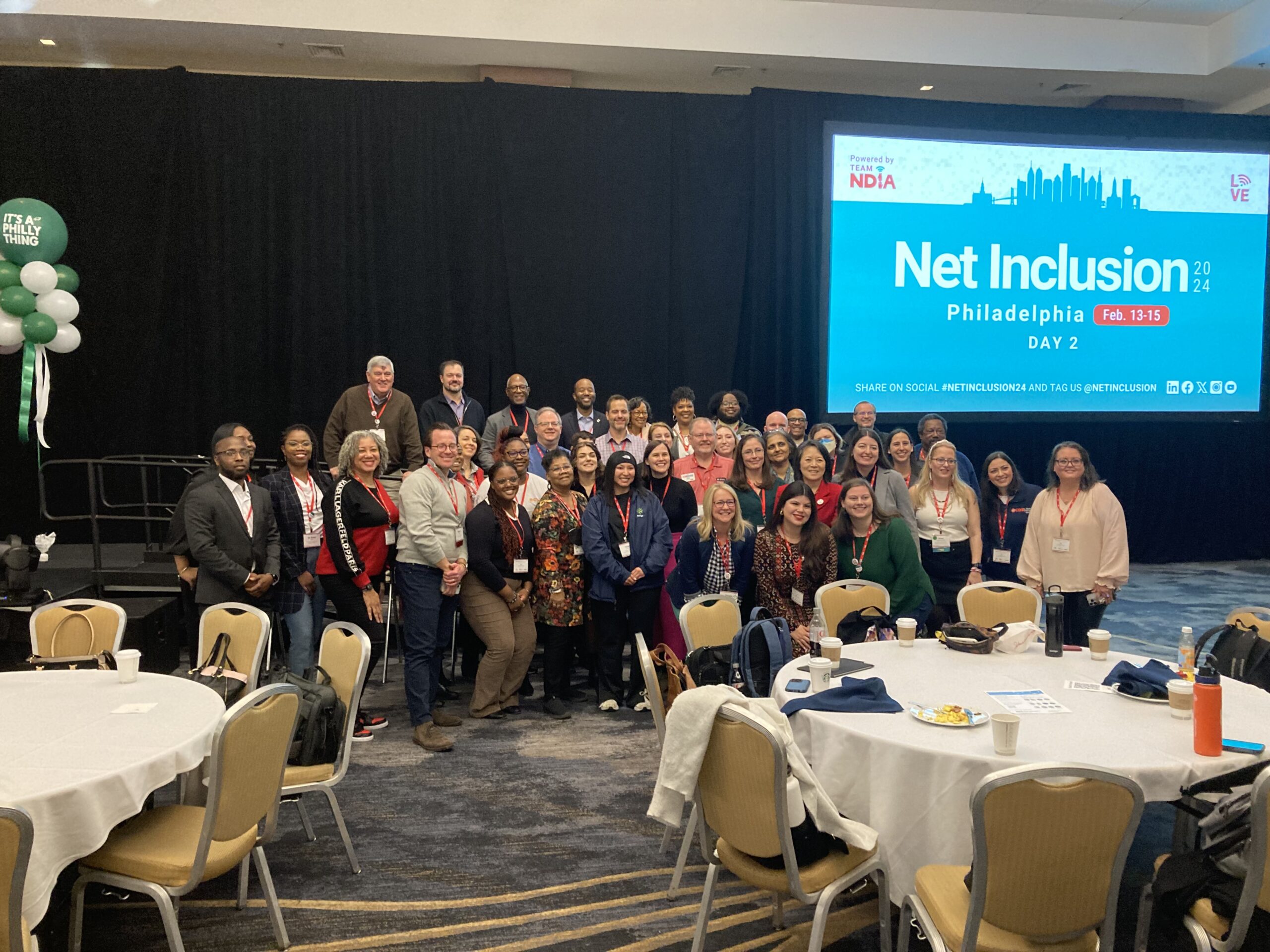The Institute for Emerging Issues charging forward to help bridge the digital divide

New partners join the IEI BAND-NC Broadband initiative to launch grant program
RALEIGH, NC — The Institute for Emerging Issues (IEI) is announcing the launch of BAND-NC, a grant program designed to increase the number of people with Internet in their homes, with the goal of making the state “first in digital inclusion.” The effort, in partnership with the NC Broadband Infrastructure Office (BIO), adds new investment from the John M. Belk Endowment and Atlantic Telephone Membership Corporation to existing commitments from Roanoke Electric Cooperative and the North Carolina Electric Cooperatives to provide at least $300,000 in grants to communities across the state.
Building a New Digital Economy in NC (BAND-NC) will support thirty $5,000 “rapid response community innovation grants” this summer, a series of workshops led by IEI and BIO to help communities develop “digital inclusion plans” this fall, and another thirty $5,000 “implementation” grants in 2021.
“The global pandemic has made it painfully obvious how critical it is for every family to have access to these services, and communities have been working hard to find emergency fixes,” said IEI director Leslie Boney. “We hope these grants can help fill some of the final emergency needs, but more importantly we are looking for communities interested in developing long-term solutions. This funding, matched with other support from government and other private investors, can be the start of those solutions.”
“Building a strategic plan is the first step in facilitating improved broadband access for students, teachers, parents and business owners,” said Tracy S. Doaks, NC Department of Information Technology Secretary and State Chief Information Officer. “Because of efforts like this, grant dollars will go into communities that are desperate for better access to affordable broadband service and the devices necessary to use it.”
IEI announced BAND-NC at its Emerging Issues Forum, ReCONNECT to Technological Opportunity, in February. The program outlines four challenges communities have in including all families in broadband services:
- Access—getting broadband into homes
- Subscriptions—helping families afford broadband services. In all just 59% of families subscribe to broadband services
- Devices—ensuring that children and adults have the equipment they need to take classes, work from home, or access health care
- Technical assistance—assisting families in learning how to effectively use high-speed access
BAND-NC asks communities to develop solutions that address each of these issues. Data from the NC Broadband Infrastructure Office shows wide disparities in adoption of broadband services, with both a rural-urban and an income divide. Rural households subscribe at lower rates than urban households (as low as 49.7% in Graham County and as high as 89.7% in Wake County). Households making under $20,000 a year subscribe at a 51.2% rate compared to 93.8% of those making $75,000 or more a year (see attached for a county-by-county listing of adoption rates).
The John M. Belk Endowment has a deep commitment to ensuring educational equity in North Carolina, and sees digital inclusion as a key opportunity in accomplishing that goal.
“COVID-19 has only increased our awareness that high-speed internet isn’t a luxury – it’s a critical utility,” said MC Belk Pilon, President and Board Chair of the John M. Belk Endowment. “By lifting up community-based solutions that provide educators, students, and families with access to broadband, devices, and technical support, we hope to further the efforts already underway in pursuit of digital equity across our state.”
The summer grant program will open June 12. The Institute for Emerging Issues will award up to 30 $5,000 mini-grants on a rolling basis through the end of August to fund local digital inclusion projects to meet unmet community needs. This includes access to the Internet, a device that meets the needs of residents, and the knowhow to use it.
This fall, grantees will be invited to join technical assistance workshops to build county-wide digital inclusion plans. A second round of funding to support the implementation of these plans will be available in Spring 2021. Digital inclusion plans will include strategies to increase access to devices and make broadband affordable to more people. They also aim to equip a range of stakeholders with knowledge of how to utilize broadband: enabling young learners to do homework online and older learners to retrain online, expanding job possibilities through telework, improving access to telehealth services, expanding business markets, improving crop yields and adding efficiency to farm operations.
The ultimate goal of the program is to make North Carolina the first state in the nation where every county has a digital inclusion plan in place.
As part of the BAND-NC effort, IEI has already partnered with the Roanoke Electric Cooperative on a “Broadband & Beyond” webinar series. The three-part series took place on May 5, May 12 and May 19 and provided updates on REC’s planned broadband rollout and shared timely information on ways to bridge the digital divide during the pandemic.
To learn more and apply you can visit iei.ncsu.edu/band-nc
###
– – – – – – – –
About Institute for Emerging Issues
The Institute for Emerging Issues (IEI) at North Carolina State University is a nonpartisan public policy organization focused on the state’s vibrancy and economic competitiveness. Since 1986, the Emerging Issues Forum has attracted leaders in business, education and public policy to discuss issues with profound implications for North Carolina’s future prosperity. For more than three decades, the Forum has helped catalyze the policy reforms, public investments and other proactive responses required to build an enduring capacity for progress in North Carolina.
About John M. Belk Endowment
Based in Charlotte, North Carolina, the John M. Belk Endowment is a private family foundation committed to transforming postsecondary educational opportunities to meet North Carolina’s evolving workforce needs. Its mission is aligned with the vision of its founder, the late John M. Belk who served four terms as mayor of Charlotte and was CEO of the department store company Belk, Inc. He created the John M. Belk Endowment in 1995 to fund a national merit scholarship program for his beloved alma mater, Davidson College. Now led by Mr. Belk’s daughter, MC Belk Pilon, the John M. Belk Endowment continues to partner with innovative, results-oriented programs in North Carolina to further Mr. Belk’s values, legacy, and focus on the value of education as a means to personal fulfillment and community vitality. For more information, please visit http://jmbendowment.org.
About Roanoke Electric Cooperative
Roanoke Electric Cooperative provides service to 14,500 members in Bertie, Hertford, Halifax, Northampton, Gates, Perquimans and Chowan counties. Chartered in 1938 to provide light and power to farms, the co-op today serves as an engine of economic development and provides educational, recreational and community assistance services to enhance the quality of life of its member-owners throughout the diverse communities it serves. Roanoke Electric Cooperative is an equal opportunity provider and employer.
About North Carolina’s Electric Cooperatives
Driven by service and inspired by innovation, North Carolina’s Electric Cooperatives are building a brighter energy future for 2.5 million North Carolinians. Beyond providing electricity, each of the 26 not-for-profit cooperatives is investing in their communities and delivering new energy solutions to improve quality of life for co-op members in 93 of North Carolina’s 100 counties.
About NC Broadband Infrastructure Office
The North Carolina Department of Information Technology’s Broadband Infrastructure Office leads the statewide initiatives to expand high-speed internet access, adoption, and use for all North Carolinians.
About ATMC
ATMC is a member-owned cooperative providing a multitude of communications services, including telephone, business services, wireless, broadband internet, cable television, and ATMC Security, in Brunswick County, North Carolina. ATMC provides services in additional areas through its wholly owned subsidiary, ATMC, LLC. ATMC is the largest communications cooperative in North Carolina and one of the largest in the country. For more information on ATMC products and services, visit atmc.com.



